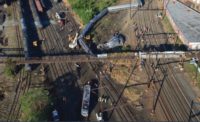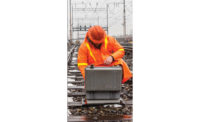The House Appropriations Committee on May 13 approved a fiscal 2016 transportation spending bill that froze FRA's safety account at 2015's $187-million level. The panel also cut Amtrak's capital and debt-service program by 25%, to $850 million.
House Speaker John Boehner (R-Ohio), at a May 14 press conference, was asked about the impact of the Amtrak funding cut and said it was "a stupid question." He added, "Obviously, it's not about funding. The train was going twice the speed limit. Adequate funds were there. No money's been cut from rail safety."
Sen. Charles Schumer (D-N.Y.) called Boehner's statements "patently false." Schumer said, "It is simply a fact that insufficient funding for Amtrak has delayed the installation of PTC, and to deny a connection between the accident and underfunding Amtrak is to deny reality."
A source said the House Appropriations Committee contacted Amtrak, which told the lawmakers on May 14 that it had spent about $110 million over five years on PTC and had the equipment in place in the area of the derailment at the time of the accident.
But the source added that there were delays in activating the system related to the railroad's dealings with the Federal Communication Commission and acquiring the bandwidth necessary to upgrade radios to a frequency higher than 900 MHz.
Congressional lawmakers want to allow railroads more time to comply with the PTC mandate but disagree about the length of the extension and whether conditions should be attached.
For example, the Senate commerce committee on March 25 approved a bill that extends the deadline for five years. The measure also allows the U.S. Dept. of Transportation to grant rail companies further extensions of two years.
But Sen. Richard Blumenthal (D-Conn.), a committee member, told reporters in a May 14 conference call that the extension in the panel’s bill “is reprehensible and irresponsible.”
Sen. Dianne Feinstein (D-Calif.) in a May 14 statement called the commerce committee’s extension “an extremely reckless policy.”
Feinstein on April 17 introduced a bill that would allow railroads one-year extensions, decided case by case, until 2018.
Sen. Edward Markey (D-Mass.), another commerce committee member, said, “We have to make sure that this safety system is prioritized.” He and Blumenthal are co-sponsors of Feinstein’s bill.
Markey added that Congress should make sure it doesn’t “rubber-stamp” a five-year PTC deadline extension. The commerce committee measure has yet to come up for a floor vote.
Wiedmann noted that if he had been asked the week before the accident about the Senate bill's chances of passage, he would have said 75-25 yes." He added, "This week, I think that may have reversed to 75-25 no."





Post a comment to this article
Report Abusive Comment